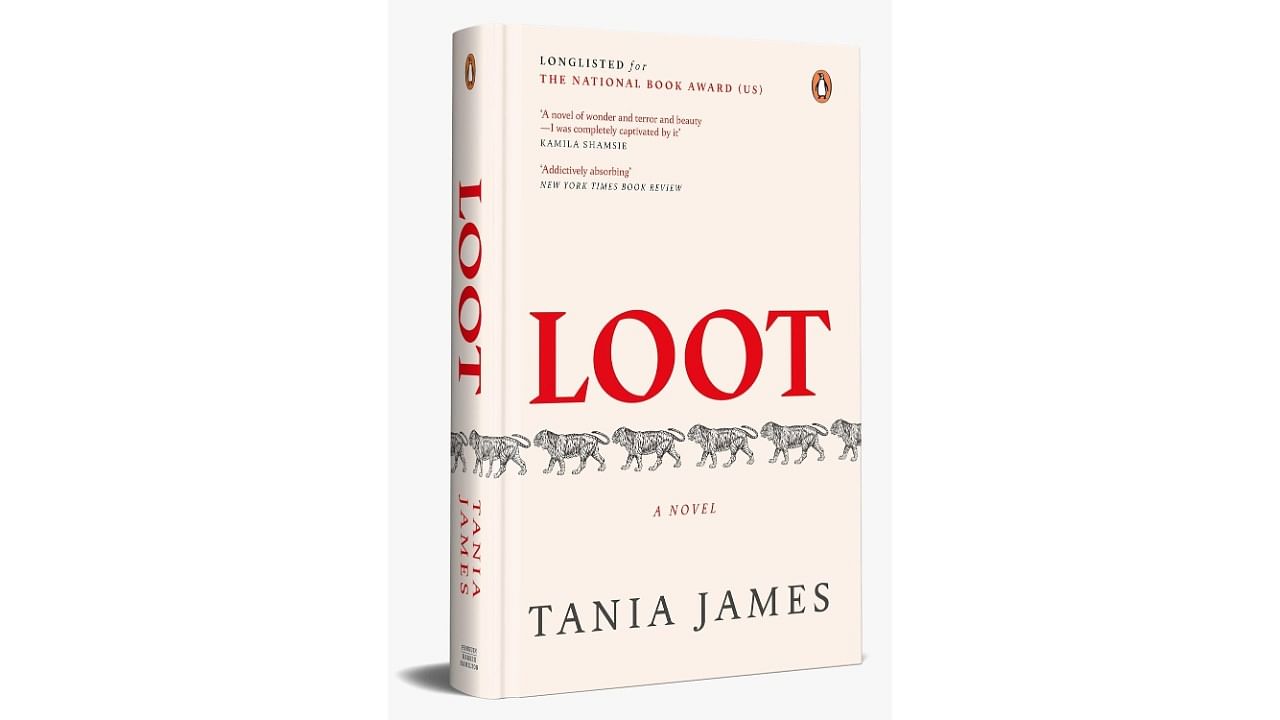
Srirangapatna, Mysore. 18th century. Tipu Sultan wants something to be made that “will silence all memory of [his] boys’ exile”. In his Summer Palace resides a Frenchman, a clockmaker, Lucien Du Leze, who’s here as an ally, as Brits happen to be the common enemy of France and the Mysore ruler. Du Leze chooses an apprentice, 17-year-old Abbas, an exceptionally gifted woodcarver. They build a tiger automaton, Tipu’s Tiger — a fascinating creation for its time. Later, when the British attacked the Sultan’s palace, the automaton, which is now a major attraction in London’s Victoria and Albert Museum, was looted. This is the setting of the Indian-American novelist Tania James’ meticulous and engrossing third, the 2023 National Book Award-longlisted novel Loot.
James, who was at this year’s Jaipur Literature Festival for a session titled ‘Negotiating the Past, Negotiating the Present’, talked about Loot and the politics of language in a conversation with DHoS. Edited excerpts:
Loot centralises conversations on colonialism and subliminally on class and gender. Were you cognisant of all these issues that are as relevant today as they were back then?
I originally thought Loot would be a heist novel that would take place in an English country house, following two people in their attempt to swindle a wealthy Englishwoman out of Tipu’s Tiger, which is part of her art collection. So, while the themes you mentioned weren’t at the forefront of my mind, they were all baked into the initial premise.
Of course, the novel took a different shape than that initial idea. A question that kept nagging me was: what would motivate someone to want this object so badly that they’d be willing to risk their reputation, their life, their freedom for it? And so, I kept coming back to the artist who made it. And as I was exploring that character, I traced his journey back to India, to the time when he was first assigned the task of constructing Tipu’s Tiger. And I discovered what it meant to him, to be apprenticed to a French clockmaker, who believed in his gifts, and to find a sense of purpose through art. That was my primary, animating interest in the book.
Could you help share what sort of research went into shaping this narrative set in the Mysore of the time?
I began writing this book during the pandemic, so most of my research was relegated to books I could find online. Tipu Sultan was such a divisive figure that there were many differing and contradictory accounts of his rule. But in some way, I think that helped me narrow the frame of my own fictionalised version. Also crucial was a visit to Srirangapatna, which I finally got to do in 2020. I was lucky to spend time with a few local historians and experts there, one of whom introduced me to the ragi ball. When exactly the ragi ball entered the Mysorean diet was unclear, but I included it anyway as one of Abbas’ favourite foods. To varying degrees, there’s always a level of speculation in historical fiction.
The role that Khwaja Irfan — a eunuch — plays in the narrative and several seemingly homoerotic exchanges were heartening to read, as historical fictions set in the period so conveniently ignore their presence. Were you trying to course-correct the history of their absences?
Some of my favourite characters to write about — like Khwaja Irfan — were people who appeared in the story for only a brief time but managed to leave a mark. I also enjoyed when the perspective would pivot towards what seemed to be a marginal character — like a nautch girl at one moment, or a four-year-old girl in the zenana at another — and enter their minds. These moments surprised me as I was writing them. To me, they suggest that seemingly insignificant characters have lives and psychologies as rich as the so-called “hero” of the story.
Loot, in many ways, is also at the core of language politics. The novel is written in English, so the looters will read the book in their language. Juxtapose this with today’s Indian reality: Many feel Hindi is getting imposed on the southern states. Your thoughts on this?
I suspect that, at the turn of the 18th century, the movement of language was as common as the movement of goods; there was a French expatriate presence in Mysore, Britishers were often passing through the city, and Mysorean ambassadors travelled back and forth to West Asia. I wanted the novel to capture some of these cross-currents, with my point-of-view character as my guide. So, for example, what Abbas understood was what I translated. What he didn’t understand, I allowed to float past him, to be ignored or misinterpreted, which can add an interesting flavour of tension to a scene.
One of my favourite bits of research, which I learned early on, was that the word loot has Sanskritic origins. This felt to me a bit like striking gold — the perfect confluence of so many thoughts I was having about theft, conquest, and trade. It’s yet another reminder to me that while languages may be imposed on people — as has been the case for as long as language has existed — the evolution of language itself cannot be controlled.